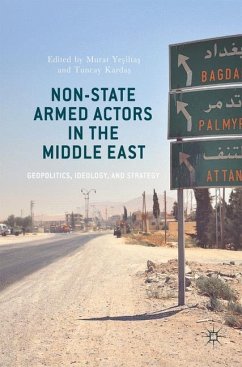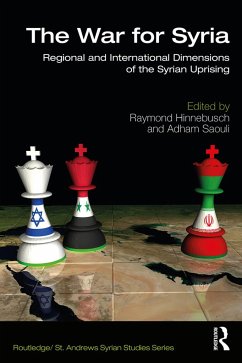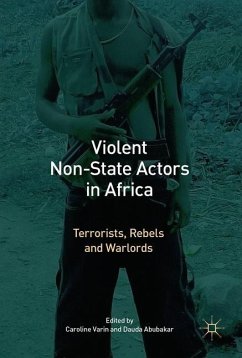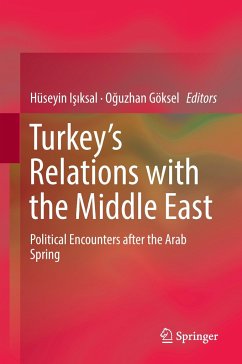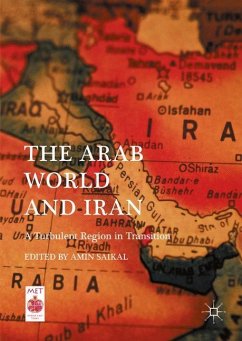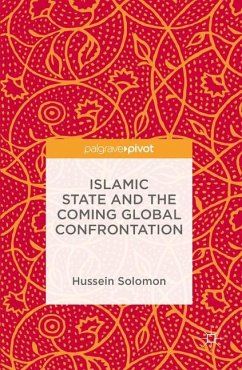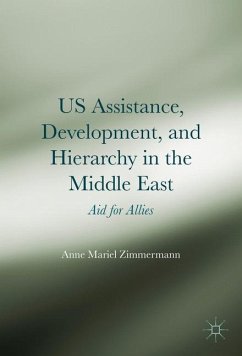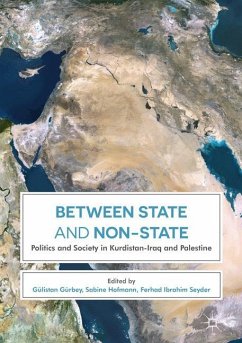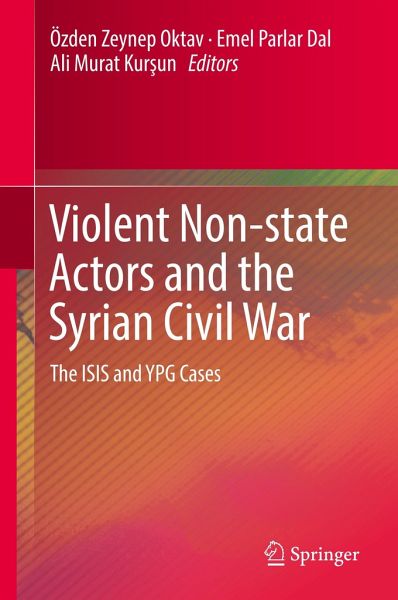
Violent Non-state Actors and the Syrian Civil War
The ISIS and YPG Cases
Herausgegeben: Oktav, Özden Zeynep; Parlar Dal, Emel; Kursun, Ali Murat

PAYBACK Punkte
44 °P sammeln!
This book sheds new light on the security challenges for failed states posed by violent non-state armed actors (VNSAs). By focusing on the Syrian Civil War, it explores the characteristics, ideologies and strategies of the Islamic State (ISIS) and the People's Protection Units (YPG), as well as the regional and geopolitical impacts of these VNSAs. The contributors also cover topics such as the re-imagination of borders, the YPG's demands for national sovereignty, and the involvement of regional and global powers in the Syrian crisis."This timely volume by regional scholars and experts examines...
This book sheds new light on the security challenges for failed states posed by violent non-state armed actors (VNSAs). By focusing on the Syrian Civil War, it explores the characteristics, ideologies and strategies of the Islamic State (ISIS) and the People's Protection Units (YPG), as well as the regional and geopolitical impacts of these VNSAs. The contributors also cover topics such as the re-imagination of borders, the YPG's demands for national sovereignty, and the involvement of regional and global powers in the Syrian crisis.
"This timely volume by regional scholars and experts examines various aspects of the emergence and expansion of violent non-state actors in the Syrian/Iraqi conflict. The wealth of detail and approaches enhance our understanding of the transformation and dynamics of contemporary conflicts within and beyond the region." Keith Krause, The Graduate Institute, Geneva "This book opens fascinating glimpses into contrasting forms of "state-like" governance established by non-state actors, ISIS and the Kurdish PYD. [...] It is an important source for students of the Syrian conflict, civil wars, failed states and hybrid governance."Raymond Hinnebusch, Director Centre for Syrian Studies, University of St. Andrews "This book is an excellent resource for those looking for an interdisciplinary account of VNSAs during the Syrian civil war. It makes a nice contribution to the study of violent non state actors and poses a set of new and pressing questions." Max Abrahms, Northeastern University.
"This timely volume by regional scholars and experts examines various aspects of the emergence and expansion of violent non-state actors in the Syrian/Iraqi conflict. The wealth of detail and approaches enhance our understanding of the transformation and dynamics of contemporary conflicts within and beyond the region." Keith Krause, The Graduate Institute, Geneva "This book opens fascinating glimpses into contrasting forms of "state-like" governance established by non-state actors, ISIS and the Kurdish PYD. [...] It is an important source for students of the Syrian conflict, civil wars, failed states and hybrid governance."Raymond Hinnebusch, Director Centre for Syrian Studies, University of St. Andrews "This book is an excellent resource for those looking for an interdisciplinary account of VNSAs during the Syrian civil war. It makes a nice contribution to the study of violent non state actors and poses a set of new and pressing questions." Max Abrahms, Northeastern University.





